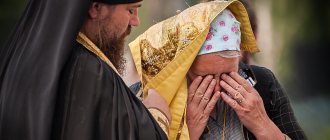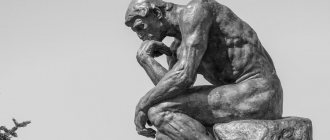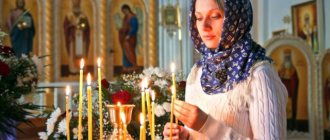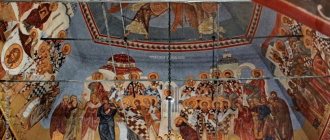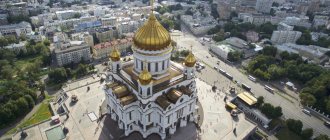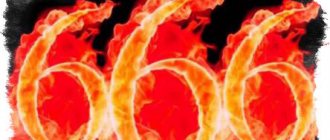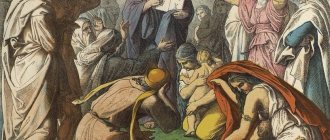Canonized by the Orthodox Church
Male names
Dates are given according to the new style.
- Alexy Voroshin, Elnatsky, martyr. (P. 25, Ivan.; Novomuch.)
- Andrew of Constantinople (Oct. 15)
- Andrey Totemsky (Oct. 23, Vologda)
- Arseny Novgorodsky (Ill. 25, Novg.; Tver.)
- Afanasy Rostovsky (Rostov.)
- Vasily Spaso-Kubensky (Kamensky), Venerable. (Aug. 15, Volog.)
- Vasily Moskovsky (Aug. 15, Moscow)
- Vasily Ryazansky (Ryaz.)
- Vasily Solvychegodsky (Volog.)
- Galaktion Belozersky (Volog.; Nov.)
- Georgy Novgorodsky (Novg.)
- Georgy Shenkursky (Novg.)
- Ilya Danilovsky, Yaroslavsky (Rostov.)
- John of Verkhoturye (Ekat., Siberia)
- John the Hairy, the Merciful, Rostov (P. 16; N. 25, Rostov.)
- John of Mozhaisk (Moscow)
- John of Moscow, Large Cap (Ill. 16, Vologda; Moscow; Rostov.)
- John of Palestine, St., St. John of Palestine, St. Simeon the Holy Fool (Aug. 3)
- John Sezenovsky (Tambovsky), Venerable. (Lip.; Tamb.)
- John of Solovetsky (Novg.; Solov.)
- John of Solovetsky (other) (Novg.; Solov.)
- John of Solvychegodsk (Volog.)
- John of Ustyug, St. (June 11, Volog.)
- Joseph Zaonikievsky (Vologda), Venerable. (Ok. 4, Volog.)
- Herodion Solvychegodsky (Volog.)
- Isidor Tverdislov, Rostovsky (M. 27, Rostov.)
- Cyprian of Suzdal, Uvotsky, miracle worker (Vlad.)
- Cyprian (Ivan.)
- Cosmas Verkhotursky (Ekat.; Siberia)
- Lavrenty Kaluga (Aug. 23)
- Leonty Ustyuzhsky (Volog.)
- Maxim Moskovsky (Aug. 26; N. 24, Moscow)
- Maxim Totemsky, priest (Jan. 29, Volog.)
- Mikhail Klopsky, Novgorod (Jan. 24, Nov.)
- Mikhail Solvychegodsky (Volog.)
- Nikolay Kochanov, Novgorod (Aug. 9, Nov.)
- Nikolai Pskovsky, Salos (Blessed) (March 12⁄13, Pskov.)
- Onisifor Romanovsky, Yaroslavsky (Rostov.)
- Parthenius of Suzdal (Vlad.)
- Procopius of Vyatka (Jan. 3)
- Procopius of Ustyansky, Vazhsky, Vologda (Ill. 21, Vologda)
- Procopius of Ustyug (Ill. 21, Volog.)
- Sergius Pereyaslavsky, schema. (Rostov.)
- Simeon of Palestine, Emesa, St. (Aug. 3)
- Simon Yurievetsky (M. 23; N. 17, Ivan.; Kostr.)
- Stefan Rostovsky (Rostov.)
- Timofey Voronichsky (Pskov), shepherd (Pskov.)
- Theodore of Novgorod (F. 1, Novg.)
- Theophilus of Kyiv, St. (N. 10)
- Thomas the Syrian, St. (M. 7)
- Foma Solvychegodsky (Volog.)
Women's names
- Domna Tomskaya, oxbow (Siberia)
- Evdokia Suzdal (Vlad.)
- Isidora of Tavenskaya, St. (M. 23)
- Ksenia of Petersburg (F. 6; June 6, St. Petersburg)
- Lyubov Ryazanskaya (Sukhanovskaya) (Ryaz.)
- Marfa of Moscow (Moscow)
- Matrona Anemnyasevskaya (Belyakova), Spanish. (Ill. 29, Novomuch.; Ryaz.)
Uncanonized holy fools
Table of contents
- Grisha
- Ivan Yakovlevich Koreysha
- Ivan Bosyi
- Wanderers Mikhail and Nikolai
- Annushka
- Stefan Trofimovich Nechaev
Grisha
In the 1920s of the last century, the holy fool Grisha appeared in one of the Russian monasteries. By the time he arrived at the monastery, he was 78 years old. Loved to sleep on a chest. He was very fond of the children living at the monastery and often talked with them. Sometimes Grisha disappeared from the monastery for a while, then appeared again. Nobody knew where he disappeared to. Everyone in the monastery knew that the holy fool Grisha was perspicacious and the nuns loved to talk with him. Not only in the monastery were they aware of Grisha’s insight; many parishioners wanted to talk to him and get an answer to their question. In 1932, the holy fool was sent to a prison for the insane, where, most likely, his life ended.
In the Collection “The Blessed of St. Petersburg: From Saint Blessed Xenia of Petersburg to Lyubushka Susaninskaya” the following information is given about Grisha:
“He was often asked the question:
- How old are you, Grisha?
“Ten,” he answered.
No one knew, of course, that in ten years Grisha would be taken away from here forever, that he would live here for another ten years.
Grisha was well known and loved in the city. This irritated the authorities so much that mocking notes by a certain worker I. Stankovsky even appeared in the press with a title that essentially reflected the actual state of affairs - “Candidate for Sainthood.”
People came from all over the city to talk to Grisha. When he disappeared, everyone realized that Grisha had been arrested. It happened on March 29, 1932.” (From the article: Trickster. Ales Krasavin)
Procopius of Vyatka
This man's journey of bliss began after he was struck by lightning. Unlike St. Basil and other holy fools, Procopius did not make strange speeches, because he took a vow of silence on himself. He conveyed his predictions to people with signs. So, when Procopius saw a sick person who, as it seemed to him, would not live long, he immediately began to cry and symbolically fold his hands on himself.
Ivan Bosyi
Kyiv holy fool Ivan Bosy (1807–1855). The beginning of his life was quite prosperous: the boy grew up under the care of his parents and successfully studied at the gymnasium. But when he was 14 years old, he was left an orphan. I had to leave the gymnasium. In addition, Ivan had to take care of his little sister. The search for income led him to routine bureaucratic service. Having endured many insults and humiliations, Ivan Grigorievich was forced to retire in 1834 and found himself completely without a means of subsistence. Having settled his sister, he wandered around holy places for several years, eating nothing but alms, and in the 40s, he was finally able to settle in the Kiev Pechersk Lavra, taking upon himself the feat of foolishness.
There is an opinion that the personality of Ivan Grigorievich Kovalevsky served as artistic material for Nikolai Gogol, who created the famous literary image of Akaki Akakievich in the story “The Overcoat”.
Ivan Kovalevsky dressed rather strangely: in the summer he wore boots, and in the winter, on the contrary, he was barefoot, for which he was nicknamed Ivan Bosy. Sometimes, collecting colored glass, pebbles, and chips, he gave them to people with various parables and sayings, in which they found a special meaning for themselves.
Ivan Grigorievich died on June 7, 1855 and was buried in the Kiev Pechersk Lavra, but his grave has not survived to this day. (From the article: Trickster. Ales Krasavin)
A holy fool is a person who, by the will of God, behaves like a madman
In modern language, foolishness is shocking behavior, with external signs of madness, that carries spiritual goals. To act like a fool means to pretend to be crazy.
Who is the holy fool? Usually the one who fulfills the will of God, the task of the Almighty. Very rarely do people take this path by personal decision. Whatever one may say, Christianity has sufficient tools to move along the spiritual path without such extremes.
“The Holy Fool”, painting by Pavel Svedomsky. It is clear that this is a man without a home and good clothes. He consciously takes this path for spiritual purposes. Photo: upload.wikimedia.org
Foolishness can be considered a unique manifestation of asceticism. Asceticism is self-restraint: in food, in communication, in other pleasures. A person who has taken the path of foolishness denies himself normal human communication. From now on he is considered crazy to everyone.
A certain manifesto of foolishness can be found in the New Testament:
“We are fools for Christ’s sake, but you are wise in Christ; We are weak, but you are strong; you are in glory, and we are in dishonor. Even to this day we endure hunger and thirst and nakedness and beatings, and we wander and toil, working with our own hands. They slander us, we bless; they persecute us, we endure..."
(1 Cor. 4:10)
And there are many such quotes. You can also think about this one:
“Has God not turned the wisdom of this world into foolishness?”
(1 Cor. 1:20)
Wanderers Mikhail and Nikolai
In September 1980, my wife and I arrived at the Pskov-Pechersky Monastery and after the liturgy we found ourselves in the church, where Father Adrian reprimanded the possessed. When the lecture was over, I wanted to quickly get out of the monastery, get to some canteen, eat and go back. But it happened differently. Nikolka came up to us. I noticed him while still at work. He was dressed in a heavy drape coat that reached to his toes, although it was at least 15 degrees Celsius.
“Let’s go and pray,” he said quietly, looking somewhere to the side.
“So we prayed,” I muttered, not entirely sure that he was addressing me.
“You still need to pray.” And to your wife. There is a chapel nearby. Let's go to.
He spoke so pitifully, as if his life depended on my agreement or disagreement. I looked at my wife. She was also tired and could barely stand on her feet. Nikolka looked into her eyes and said quietly again:
- Let's go and pray.
We walked for quite a long time. We went around the monastery walls on the right, went down into a ravine, passed a whole street of small houses with front gardens and vegetable gardens, and entered a pine grove, where there was a chapel. Nikolka took out several candles, a prayer book and an akathist book from his pocket. Having lit the candles, he began to stick them into a small ledge in the wall. In a quiet, plaintive voice he sang “Heavenly King.” We stood in silence, because apart from “Our Father”, “Virgin Mary” and “I Believe”, we did not know any prayers. Nikolka constantly looked around and nodded his head, inviting us to sing along. Realizing that we couldn’t get any song sense out of us, he continued his plaintive singing, quietly swaying his whole body from side to side. His head seemed to be swaying independently of his body. He leaned her towards his right shoulder, intricately moving his chin to the left and up. Freezing for a few seconds, he sent his head in the opposite direction. The hair on this head was not just unkempt. Instead, there was a huge tangle, matted to the point of a red felt boot. (Subsequently, I learned that the police, who constantly detained Nikolka for vagrancy, always had big problems with his hairstyle. Even roofing scissors wouldn’t take his tangles. They had to chop it off with an ax, and then somehow scrape off the rest and shave his head .) Looking at Nikolka’s figure, I could not concentrate on the words of the prayer. I wanted to sleep and eat. My legs are numb. I was angry at myself for agreeing to go with him. But I really didn’t want to offend the blessed one. And then, it seemed to me that this meeting was not accidental. I recalled life stories about how the Lord Himself appeared in the guise of a wretched sufferer in order to test a person’s faith and his willingness to serve his neighbor. My wife shifted from foot to foot, but, as far as I could understand, she tried to pray together with our new acquaintance. He began with the Penitential Canon. When he began to pray for his loved ones, he called our names and asked the names of our son, parents and everyone who is dear to us and for whom we usually pray. Then he asked my wife to write all these names for his synodik. She wrote them on a sheet of paper torn from my notebook. I sighed with relief, believing that the prayer was over. But it was not there. Nikolka took a piece of paper with the names of our loved ones and quietly, drawn out: “Let’s pray to the Lord!” Then came an akathist to the Sweetest Jesus, then to the Mother of God, then to St. Nicholas the Pleasant. After that, he took out from his coat's breast pocket a thick book with the names of those for whom he constantly prayed. He inserted a piece of paper with our names into this volume, reading it first. Having finished praying, he made three prostrations, slowly and solemnly making the sign of the cross. He stood motionless for several minutes, stopping swaying, whispering something quietly, then he turned to us and, looking over our heads at the gathering dark clouds, began to speak. He spoke slowly and as if embarrassed by his unworthiness in daring to speak about God. But his speech was correct and quite reasonable. The essence of his sermon was that we would quickly part with the usual joys and delusions, would love the Church and understand that the Church is the place where real life happens, where the living God is present, with whom any Soviet idiot can communicate directly and constantly. And also so that we stop thinking about money and problems. The Lord gives everything you need for life free of charge. You just need to ask in faith and be grateful for everything. And in order to receive healing for sick loved ones, you need to work hard and never give up prayer.
When he finished, he looked us straight in the eye: first my wife, and then me. It was an amazing look, piercing right through. I realized that he sees everything. In his short sermon, he mentioned all our problems and, speaking on so-called “general topics,” gave us very specific advice - exactly the ones we needed. His look said: “Well, have I brought some sense into you? Do you understand everything? Looks like not everyone."
I never met his direct gaze again. And then I met Nikolka often: in the Trinity-Sergius Lavra, and in Tbilisi, and in Kiev, and in Moscow, and on New Athos, and in St. Petersburg churches on patronal holidays. I always approached him, said hello and gave him money. He accepted, nodded without words and never made eye contact. I wasn't sure he remembered me. But that's not true. Mikhail, with whom he constantly traveled, recognized me and, seeing me from afar, shouted, waved his head and arms, inviting me to come up. He knew that I worked in documentary films, but he communicated with me as with his wanderer brother. He always joyfully asked where I was going, talked about his movements around the Orthodox space, reported on patronal feasts in the surrounding churches, which he had visited and which he was still planning to attend. If we met in Sochi or on New Athos, he told us about the route back to the north. While we were exchanging impressions and talking about what had happened since our last meeting, Nikolka stood with his head bowed to the side, looking somewhere into the distance or, throwing his head back, looking up at the sky. He, unlike Mikhail, never asked me anything and did not take part in our conversations. He answered my questions in monosyllables and, as a rule, incomprehensibly. It seemed to me that he was offended by me because I was poorly fulfilling his covenants, given to him on the day we met. He devoted so much time to us, chose us from the crowd, made us accomplices in his prayerful feat, realized that we needed admonition, hoped that we would come to our senses and begin to live a righteous life, leaving secular vanity. And here there is such lukewarmness. And what to talk about with someone who did not live up to his hopes?! When I once asked him if he prayed for us and included us in his synod, he meowed something in response and, throwing his head back, stared at the sky.
He never showed impatience. After the service, a whole crowd of praying men always ran up to Mikhail and attacked him for a long time with requests to pray for them and give spiritual advice. They called him Father Michael, they asked for a blessing, and he blessed, making the sign of the cross on those who asked, as befits a priest. It was rumored that he was a secret archimandrite, but it was difficult to believe. He walked, leaning on a thick, gnarled stick, which split in half and turned into a folding chair. He sat on this chair during services and receiving the people of God in the fence of churches. I noticed that the priests, looking at the crowd surrounding him and Nikolka, were annoyed. Sometimes they were sent outside the fence, but sometimes they were invited to a meal.
During Father Mikhail’s conversations with the people, Nikolka was given alms. Accepting the paper money, he slowly nodded his head and swayed indifferently; receiving a penny, he fervently crossed himself, throwing his head up, and then fell face down on the ground and whispered something for a long time, begging the Lord for special mercy for the “widow for her two mites” who had bestowed him.
In St. Petersburg, an exalted woman took them to her place for the night. She wore a black robe, but was not a nun. They say that she has now cut her hair and lives abroad. I really wanted to visit her someday and talk more thoroughly with Father Mikhail and Nikolka. All our conversations were short-lived, and we did not talk about anything except pilgrimage routes and some unimportant events. But I never dared to ask the lady who privatized Mikhail and Nikolka. She very violently fought them off from her admirers, loudly announcing that “a car is waiting, and Father Mikhail is tired.” Hearing about the car, Father Mikhail cheerfully rushed, waddling from side to side, after his savior, energetically helping himself with his folding chair. People rushed after him from all sides: “Father Michael, pray for me!” “Okay, I’ll pray. I pray for everyone. Be healthy and my respects,” he answered, pulling a tall top hat over his head. I don’t know where he got this cardboard product: either from some theatrical prop maker or he made it himself.
The picture of Mikhail and Nikolka, led by an energetic lady, passing through the line of praying mantises was quite comical. Imagine: Nikolka with her matted hair in a coat that reaches to her toes and a dwarf in a vest with a top hat on his head, surrounded by a sea of “white handkerchiefs”. Grannies mince, overtaking each other. This entire huge mass, swaying and breaking into several streams, moves against the backdrop of the Trinity Cathedral, churches and high Lavra walls along the bridge over Monastyrka, pushing back and pushing aside the taken aback foreign tourists.
The love of Russian people for holy fools is understandable. Many aspects of our life cannot be treated without foolishness. But foolishness for Christ’s sake is now a rarity. You won’t meet people like Nikolka and Father Mikhail these days. (Alexander Bogatyrev, Pravoslavie.ru. Published with abbreviations.)
Ksenia Petersburgskaya
She was 26 years old when her husband died unexpectedly. The young widow did not shed a single tear. After the funeral, she changed into her husband’s clothes and began giving away her property left and right. She was certainly considered crazy. Ksenia's relatives reported her to the police, where, however, after a long interrogation, the woman was considered sane.
Tested for generations: we make effective fertilizing for seedlings
Scientists have developed edible cling film based on seaweed
Bringing the rose bush back to life after winter: how to properly reanimate flowers
Since then, a woman dressed in a colonel’s uniform has been wandering the streets of St. Petersburg. Boys threw stones at her, adults shouted curses after her. But over time, the attitude of the townspeople towards the blessed one changed - Ksenia demonstrated amazing insight and the ability to heal.
One day the holy fool approached a childless woman and said: “Run to the cemetery, God sent you a child. She went in the indicated direction, and a few minutes later witnessed a terrible event: a young mother died before her eyes. The woman took in the child of the deceased and raised him as her own. This is one of the stories about Xenia of Petersburg, which has come down to us in different variations.
Annushka
Under Nicholas I, the old holy fool “Annushka” was very popular in St. Petersburg. A small woman, about sixty years old, with delicate, beautiful features, poorly dressed and always carrying a reticule in her hands. The old lady came from a noble family and spoke fluent French and German. They said that in her youth she was in love with an officer who married someone else. The unfortunate woman left St. Petersburg and returned to the city a few years later as a holy fool. Annushka walked around the city, collected alms and immediately distributed it to others.
For the most part, she lived with this or that kind-hearted person on Sennaya Square. She wandered around the city, predicting events that did not fail to come true. Good people sent her to an almshouse, but there the sweet old lady with the reticule showed herself to be an unusually quarrelsome and disgusting person. She got into frequent quarrels with almshouses, and instead of paying for transportation, she could beat the cab driver with a stick. But in her native Sennaya Square she enjoyed incredible popularity and respect. At her funeral, which she arranged for herself, all the inhabitants of this famous square came to the Smolensk cemetery: merchants, artisans, laborers, clergy.
There are examples of Foolishness in the Old Testament: Elijah, Hosea, Ezekiel
There were most holy fools in Rus', and therefore it was here that the term for their name appeared. But we can observe the phenomenon itself throughout the known history of mankind. You cannot ignore the Old Testament here. Many prophets behaved like fools. Here are just a few examples:
Brief Life of Blessed Maxim, Christ for the Fool's Sake
- Isaiah went without clothes for three years.
- Hosea lived with a harlot for whom he had no feelings.
- Ezekiel ate cakes that he cooked with cow dung.
The Prophet Elijah can conventionally be called the holy fool of the Old Testament.
He went without clothes to warn about the coming Egyptian captivity. Photo: days.pravoslavie.ru We cannot say that here we are clearly talking about the same foolishness. Externally it looks like it. But what does it mean to be a holy fool? Perhaps behind each strange behavior there are different manifestations of a person’s spiritual activity. It’s hard to say anything here.
In the case of prophets, Orthodoxy teaches that their behavior is primarily an illustration (a symbol, if you will) of the sins of Jewish society or a warning of trouble. This is how the prophets attracted public attention to issues that were relevant to their time.
Is this foolishness? Not quite, but at least it resembles it.
